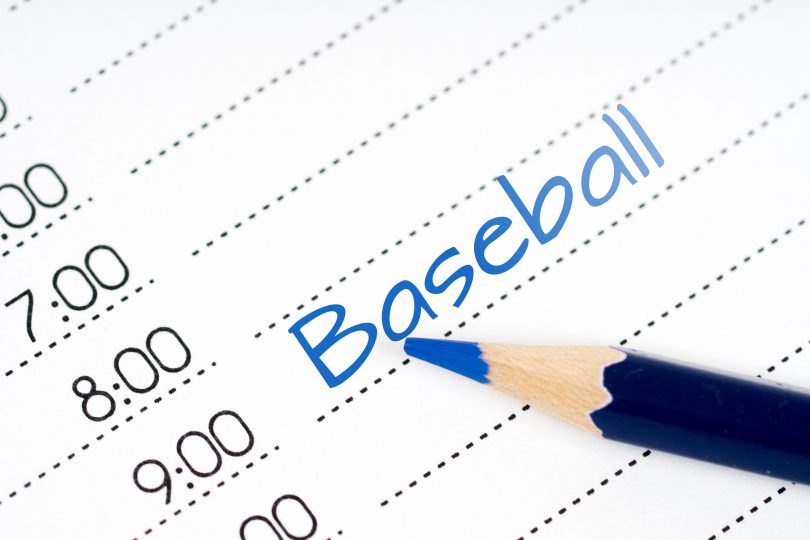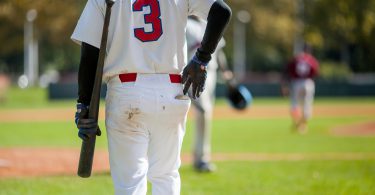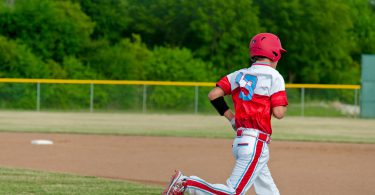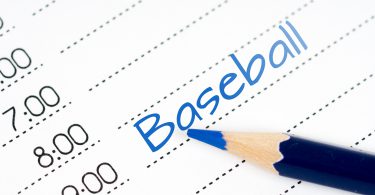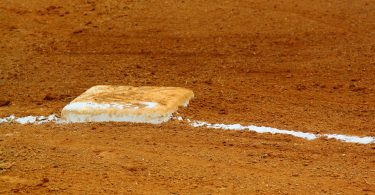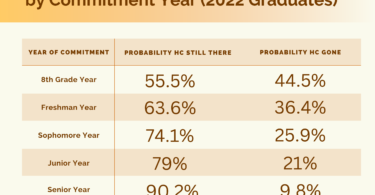There’s no time for a lazy summer if you want to play college baseball. Summer is a period of time where you can grow and improve by leaps and bounds as a player, even if you are limited with organized baseball that’s available. In this article, we share 6 ways you can improve your baseball skills this summer.
To listen to this article in podcast format, click play below!
Watch as much baseball as possible
This one may seem counter intuitive. Instead of telling you to play baseball, we are suggesting that you watch it! You know by now that we are not suggesting that you sit on your couch, surrounded by junk food, and turn into a screen zombie. We suggest you take an active role in watching games, old and new. MLB is in full swing, the College World Series is right around the corner, and YouTube provides games from every level to learn from.
Watch the professionals at your position closely. What is their pre-pitch routine? How do they approach different kinds of ground balls or fly balls? What pitches are being thrown in what counts? What are the announcers saying? Do they make valid points? What would you say if you were announcing? Tell yourself how you would handle plays as they are happening. This can be an effective way of learning and can help you improve a lot as a player… all from the comfort of your home.
Play or train in a way that will allow you to focus on development
Summer provides arguably the best development window and time to make improvements to your game. Use this uninterrupted window wisely! Training and playing on a team both have benefits. Both options can be the right call for different players, and you should consider both your long-term goals as a player and what will be the most fun. Whether you choose an intense training program paired with strength and conditioning or playing summer ball, your focus should remain on developing into a better player. We discussed these types of summer decisions in depth in a three part series covering camps and showcases, picking a team or training program, and balancing exposure, development, and rest. Figure out what will help you grow the most and achieve your baseball goals and commit to it!
Play or train in an environment that will push you!
Summer is the time to stretch yourself. Try to play on a team or train in an environment that challenges your limits and pushes your comfort zone. Learn from the players around you and playing against you. If you aren’t experiencing success against tough competition, keep with it. If you aren’t seeing the immediate results that you are hoping for, remember that growth isn’t linear and sometimes it will seem you are getting nowhere when the next big leap is right around the corner. Do the research you need to play or train in a place where you know the process works and commit to doing it with the intent to get better. Be invested in what you are doing and put everything you have into it.
Commit to a plan and build a routine to reinforce that plan
Too many summers go to waste because high school players have so much time; they don’t know what to do with it. Commit to a plan to get better and build a daily routine. If you ask guys in college and pro ball how they got there, most will tell you they had a plan and stuck with it. Things are easier to continue doing when you have a streak or a routine you commit to, even when you are tired and don’t want to. Here’s an example: If you are playing in the Northwoods league or the Cape Cod League, two of summer’s most prestigious college summer leagues, you have games almost every night. You also may have a lot of time to yourself during the morning and afternoon. You can use it to your advantage or you can let it pass by. Here is what a lot of great players do:
Wake up relatively early. Eat breakfast. Work out. Snack. Short nap. Eat lunch. Get ready for game. Get to the ballpark. Pre-game routine. Game. Bed. Start over the next day.
Compare that to another possibility:
Wake up at noon. Eat a big breakfast. Watch TV. Get to ballpark. Pre-game routine. Game. Stay up watching TV. Get to bed late. Start over next day.
Which one is more productive? If you are serious about playing college ball, use your summers wisely.
Set SMART goals
“SMART” stands for Specific, Measurable, Attainable, Relevant, Time-bound. If you are working towards goals, it is easier to stay on track with a routine or commit to a daily plan to get better. SMART goals are important because they keep you accountable, and you can track your progress. Make sure each of your goals fits with each of the SMART characteristics. Here’s an example:
You run a 7.2 second 60-yd dash, but never really train for running. A SMART goal might be to get your 60 time between 6.9 and 7 flat by the first day of classes in the fall. Is this a specific goal? Yes. Can it be measured? Yes. Is it attainable? Probably. If you are going to push the limits of any part of a SMART goal, attainability is the best one to choose. Is the goal relevant to baseball? Yes. Is the goal time-bound? Yes. Summer vacation is a finite period of time that ends when school starts. Having a reasonable deadline like summer’s end is important, because it won’t let you slack off. The only thing you have left to do is set a routine that will help you get there.
Spend time making your skill set more dynamic
Pick a small in your game that you don’t usually work on (base running, bunting, etc.) and devote a little time each training session to improving it. Make it a point to work on things that can really make a difference in your game. Becoming a complete or more well-rounded player is something all college coaches will value. This means you will have to devote time to working on and improving your weaknesses or things you don’t enjoy, in addition to building on your strengths and interests. When you commit to improving at a skill even when you don’t enjoy working on it, it’s a sign that you are committed to making it to the next level and have the maturity necessary to make it happen. The more usable skills you have in your toolbox, the better.
If you are serious about playing college baseball, having a lazy summer is out of the question. Put together a plan, take advantage of an open schedule, and get to work. Good luck!

